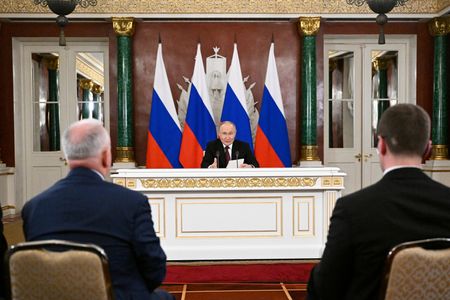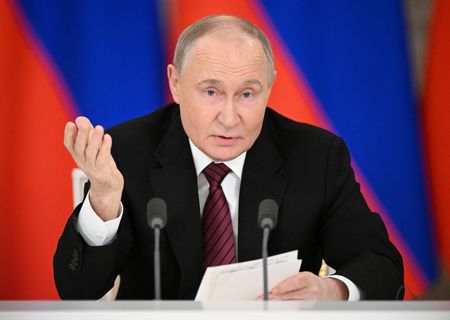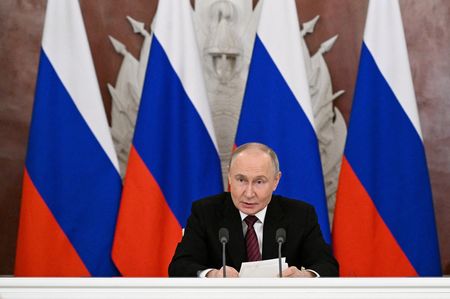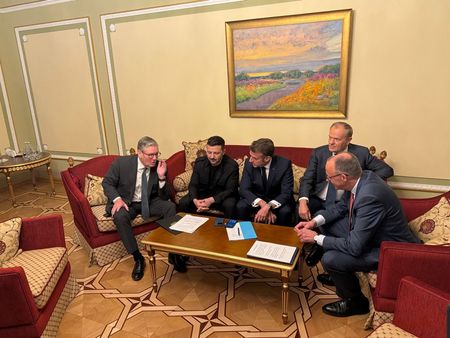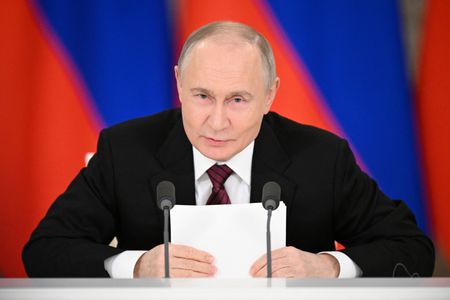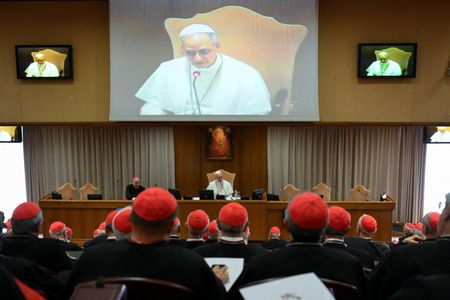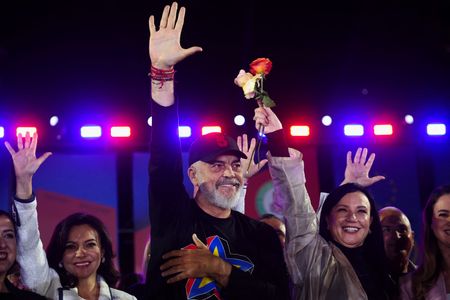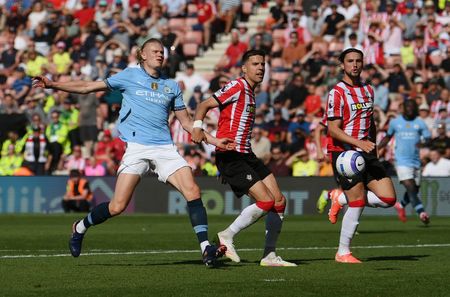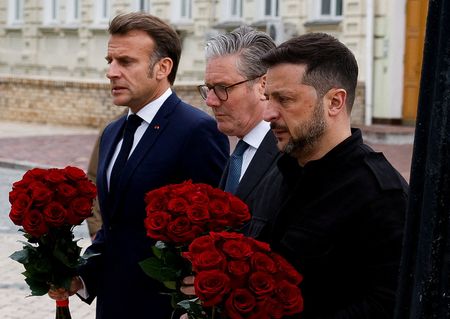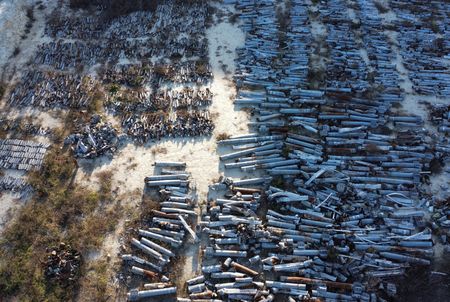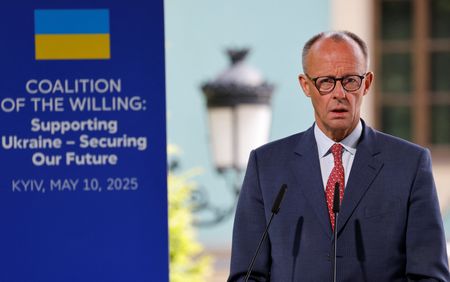By Marina Bobrova and Lidia Kelly
MOSCOW (Reuters) -Russian President Vladimir Putin on Sunday proposed direct talks with Ukraine on May 15 in Istanbul that he said should be aimed at bringing a durable peace and eliminating the root causes of the war.
Putin sent thousands of troops into Ukraine in February 2022, unleashing a war that has left hundreds of thousands of soldiers dead and triggering the gravest confrontation between Russia and the West since the 1962 Cuban Missile Crisis.
He said Russia was proposing direct talks with Ukraine in Istanbul in an attempt to “eliminate the root causes of the conflict” and “to achieve the restoration of a long-term, lasting peace” rather than simply a pause for rearmament.
“We are proposing that Kyiv resume direct negotiations without any preconditions,” Putin said from the Kremlin in the early hours of Sunday. “We offer the Kyiv authorities to resume negotiations already on Thursday, in Istanbul.”
Despite public and private pressure from U.S. President Donald Trump and repeated warnings from European powers, Putin has offered few concessions towards ending the conflict.
Putin said that he would speak to Turkish President Tayyip Erdogan later on Sunday about facilitating the talks, which he said could lead to a ceasefire.
“Our proposal, as they say, is on the table, the decision is now up to the Ukrainian authorities and their curators, who are guided, it seems, by their personal political ambitions, and not by the interests of their peoples.”
There was no immediate response from Kyiv to the proposal, which came in the early hours of Sunday morning.
Russia, Putin said, had proposed several ceasefires, including a moratorium on striking energy facilities, an Easter ceasefire and most recently the 72-hour truce during the celebrations marking 80 years since victory in World War Two but accused Ukraine of repeatedly violating the ceasefires.
He said that during the May ceasefire Ukraine had attacked Russia with 524 aerial drones, 45 sea drones, a number of Western missiles and that Russia had repelled five attacks on Russian regions.
Ukraine has accused Russia of repeatedly violating its own ceasefire, and along with major European powers, demanded on Saturday that Putin agree to an unconditional 30-day ceasefire or face “massive” new sanctions.
Putin dismissed what he said was the attempt by some European powers to slap down “ultimatums”.
PEACE?
Putin, whose forces have advanced over the past year, has stood firm in his conditions for ending the war.
In June 2024, he said that Ukraine must officially drop its NATO ambitions and withdraw its troops from the entirety of the territory of four Ukrainian regions claimed by Russia.
Russian officials have also proposed that the United States recognise Russia’s control over about one fifth of Ukraine and demanded that Ukraine remains neutral though Moscow has said it is not opposed to Kyiv’s ambitions to join the European Union.
Putin specifically mentioned the 2022 draft deal which Russia and Ukraine negotiated shortly after the Russian invasion of February 2022.
Under that draft, a copy of which Reuters has seen, Ukraine should agree to permanent neutrality in return for international security guarantees from the five permanent members of the U.N. Security Council: Britain, China, France, Russia and the United States.
“It was not Russia that broke off negotiations in 2022. It was Kyiv,” Putin said. “Russia is ready to negotiate without any preconditions.”
He thanked China, Brazil, African and Middle Eastern countries and the United States for their efforts to mediate.
Trump, who says he wants to be remembered as a peacemaker, has repeatedly said he wants to end the “bloodbath” of the Ukraine war which his administration casts as a proxy war between the United States and Russia.
Former U.S. President Joe Biden, Western European leaders and Ukraine cast the invasion as an imperial-style land grab and repeatedly vowed to defeat Russian forces.
Putin casts the war as a watershed moment in Moscow’s relations with the West, which he says humiliated Russia after the Soviet Union fell in 1991 by enlarging NATO and encroaching on what he considers Moscow’s sphere of influence, including Ukraine.
(Reporting by Marina Bobrova, Dmitry Antonov, Lidia Kelly, Anastasia Lyrchikova and Felix Light; editing by Guy Faulconbridge and Lincoln Feast.)

